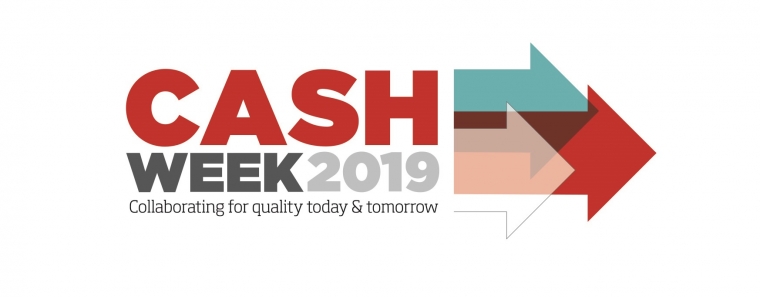CaLP week 2019: Collaborating for quality today & tomorros
CaLP Week 2019

December 3, 2019 - December 4, 2019
Online
In recent years, the use of cash and voucher assistance in humanitarian action has increased dramatically. Cash Week 2019 will provide a space to reflect, learn, and look ahead, to ensure quality in our use of CVA at scale. Bringing together cash actors and specialists from relevant fields, this series of events is designed to share developments in programme quality, understand the current blockages, and agree together how we will build this learning into our planning for the future.
For more information on this event, check out the dedicated page:
- http://www.cashlearning.org/events-and-training/cash-week-2019
Some selected sessions will be live streamed on CaLP YouTube channel
Tuesday 3rd, London, UK
Operational Models: what do we want to see? (9am -1pm)
The live stream will be available on our YouTube channel from 9am – 10:30am.
The last 18 months have seen exciting and rapid developments around operational models to programme and deliver CVA, with the growth of the Collaborative Cash Delivery platform and the announcement of the UN Common Cash System. There is a significant opportunity to ensure that the development of these models is being supported by the best available evidence and experience from across the humanitarian community. The CaLP network has an important role in synthesising and presenting the state of the evidence in several key operational areas and in providing support to both emerging models.
Ahead of this session, CaLP will host a series of webinars around four central themes, bringing together subject matter experts with actors from across the CaLP network to develop recommendations for emerging models on each theme.
This session will review recommendations and set out some collective aspirations for emerging operational models – what will success look like and how will we know if we’re heading in the right direction?
Wednesday 4th, London, UK
CVA, Data Responsibility and Risks (9am – 1pm)
Politics, Ethics & Operational realities: attempting to square rel=”noopener noreferrer” the circle
The live stream will be available on our YouTube channel from 9.15am – 10.30am.
At the Grand Bargain Sub-workstream meeting on Cash in May 2019, the organisations present agreed that further evidence and guidance is needed to address this blockage and to help organisations understand and mitigate the risks that exist. There are many activities ongoing to address this in signatory organisations but these efforts are currently siloed, risking gaps and duplications.
There are multiple types of risk which apply to humanitarian CVA programming. Many of these apply across all humanitarian assistance but some – in particular risks around data, financial compliance and working with the private sector – are more acute in CVA programming than in other types of assistance.
CaLP and its members have to date done a lot to address gaps in knowledge and provide practical guidance related to CVA and risk, however as CVA continues to grow in scale new challenges and dimensions of risk emerge.
CaLP will use the opportunity of the cash community coming together to bring out the latest evidence and advance the debate for quality CVA in two key areas:
1) Risks and Impact of Countering the Financing of Terrorism (CT) and Anti Money Laundering measures on CVA
2) Risks and Ethical dilemmas surrounding Data Responsibility and Protection in Humanitarian CVA In collaboration with CaLP member, Norwegian Refugee Council.
Localisation, CVA Institutionalisation rel=”noopener noreferrer” and Cash Readiness (2pm – 3.30pm)
The live stream will be available on our YouTube channel from 2pm – 3:30pm.
As part the Grand Bargain commitments, localisation is properly emphasised as crucial to improving humanitarian response. Within cash and voucher assistance programming, local and national responders offer perspectives and capacities to improve design and implementation by nature of their understanding of and proximity to beneficiaries. Many humanitarian organisations work with local organisations as partners, and many of those local partners would benefit from improving skills and systems to more effectively engage with CVA. This session will explore needs, current actions and future opportunities for local organisations to build their capacity, and be viable, strong partners in CVA planning and delivery by discussing three related topics:
• the Grand Bargain commitment to localisation
• the presence of CaLP member orgs who are local/national orgs who can speak to their realities of becoming ‘cash ready’
• CaLP’s offer of the Organisational Cash Readiness Tool as a resource to help organisations conduct a self-assessment to identify gaps and required capacity needs for enhancing their ability to engage in CVA
This panel and plenary discussion will include:
• how efforts to strengthen local (ie, close to beneficiaries) capacity for CVA design and implementation might be achieved,
• how CaLP’s OCRT can support organisational readiness,
• what CaLP members can do and are doing.
